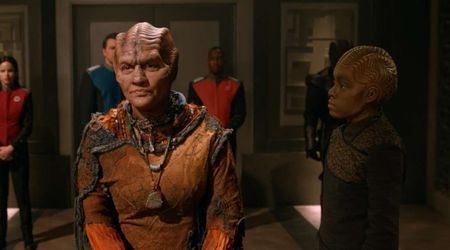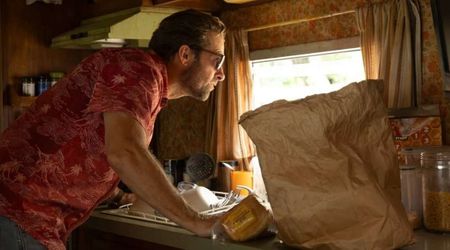'The Surgeon's Cut' Review: Netflix docuseries is a moving look at pioneering doctors who overcame obstacles

That healthcare workers are miracle workers is not something that needs reminding, especially in a year that will forever be defined by the Covid-19 pandemic. As the first vaccines are being rolled out in the United Kingdom, it is hard not to acknowledge the roles that doctors and nurses have played in keeping the pandemic from getting worse. Of course, during times like these, it is also easy to forget that healthcare workers do not just exist to tend to us, but are people with their own lives, their own dreams and their own worries. It is at a time like this that Netflix's latest docuseries, 'The Surgeon's Cut' serves as a stark reminder that they are actual human beings beneath the blue scrubs that we have gotten used to seeing.
We know that those who have chosen to become healthcare workers go through a lot of hard work and struggle to get to where they are. And while television dramas like 'Grey's Anatomy', 'Chicago Med', and 'Scrubs' often strive to remind us that they have personal lives too, the fictional barrier does not often help translate it to reality. 'The Surgeon's Cut' is co-produced by BBC and follows four doctors who have been pioneers in their respective fields. The doctors come from different parts of the world and have often had to overcome their own struggles and societal discrimination to get to where they are today.
The first episode features Kypros Nicolaides, a Greek doctor practicing and teaching at King's College Hospital, London. Nicolaides is one of the most sought-after doctors in fetal surgery and his discoveries have changed the field. He has developed methods for screening for premature birth and pre-eclampsia and has even developed surgical methods that have saved many lives. One of those methods is featured in the episode as Nicolaides attends a patient having twins suffering from twin-to-twin transfusion syndrome. Nicolaides is able to save them through a laser surgical method that he developed that improved survival rates for the condition. But as Nicolaides makes strides in the medical field, we are reminded that he is human after all when he reveals that he has been diagnosed with cancer.
The second episode is not just a testament to doctors, but also to immigrants. Dr Alfredo Quinones-Hinojosa, a neurosurgeon, was once told by his cousin that he would only be a migrant farmworker. His cousin's words were partly true -- after crossing the border from Mexico to the United States, Quinones-Hinojosa held many jobs before finally becoming a leading surgeon in treating brain tumors. He now leads a large team of researchers, with funding from the National Institutes of Health. In the episode, he speaks of a tumor as something supernatural -- after all, what he does is also sacred as he cuts into the human skull on a daily basis.
The third episode features the only female doctor, perhaps in a sad reflection of the inequality that exists in the medical field. Dr Nancy Ascher is a transplant surgeon and one of the foremost researchers in organ transplant and believes that if done right, surgery is "incredibly fulfilling." As one of four children, Ascher was always competitive and when she was just one of 20 women in a 200-strong class at medical school, Ascher and other female students had to field sexism from their professors, one of whom would show images of naked women as part of the lecture, leading to all 20 women walking out of the class -- an act she is still proud of.
The fourth and final episode focuses on Dr Devi Shetty from India. Shetty is a cardiac surgeon, and while he is considered one of the best in the field, he is more beloved for his devotion to finding affordable medical options. As a cardiac surgeon, Shetty has performed over 15,000 operations. He founded the Narayana Hrudayalaya chain of hospitals, aiming for his hospitals to use economies of scale, to allow them to complete heart surgeries at a lower cost than in the United States. For instance, a coronary bypass surgery that costs $106,385 at Ohio's Cleveland Clinic, costs less than $1,000 in his hospitals in India.
Doctors' lives are always mysteries, even with the countless dramas we have on television. It is hard to envision how they have taken on such an important endeavor, striving to protect life in existing ways as well as finding new ways to do so. 'The Surgeon's Cut' is a small, but highly insightful look into that and is a worthwhile watch.
'The Surgeon's Cut' is available to stream on Netflix on Wednesday, December 9.










